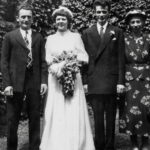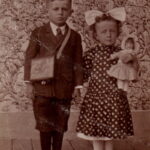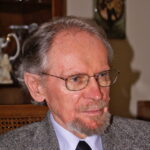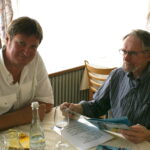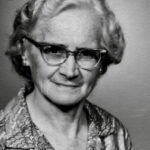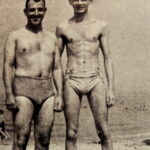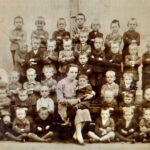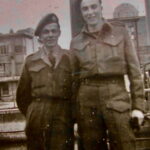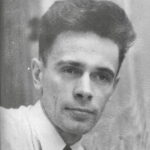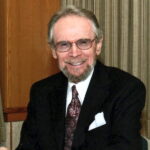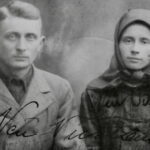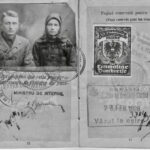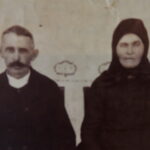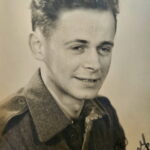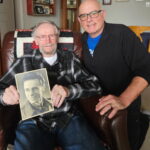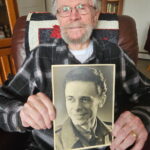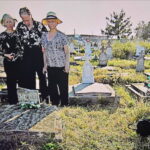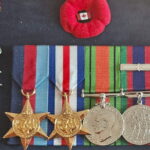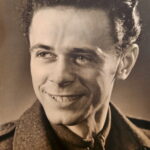John Neu was born August 21, 1923. He grew up in a German-speaking region of Romania, where his family had deep roots. Conditions were difficult there in the post-Great War era though, and John’s parents made the decision to emigrate to Canada in 1928. They initially headed to the Prairies, but they ended up in Kitchener, Ontario, where they had some relatives, sending for their children to join them in 1930. John’s younger sister died suddenly at this time, and he ended up making the journey with his aunt. John joined his parents in Kitchener after the long journey, and he recommenced his life with them just as the Great Depression was reaching its darkest days. John was 16 when the war began, and he went in at the midway point when he was 19, joining the army after the RCAF rejected him. Basic training took place in Chatham, Ontario, where the army made him a lance corporal, and soon he was on his way to England on the Queen Elizabeth and additional training at Aldershot. Many of the men there were sent to the Mediterranean, but John was assigned to the 2nd Echelon, and the Central Registry where he would serve as a clerk. As such he dealt with the mail and all the other important organizational duties assigned to him in support of the men at the front. In August 1944 John and the men in his unit crossed the Channel en route to Normandy, where they would be stationed into the autumn of 1944, when they moved on to Antwerp. John continued to serve in a support capacity, but he was near the front and subject to shelling/attack at any time; as he put it, “…you always knew you could be here today and gone tomorrow.” As the Canadian army advanced, John saw the aftermath of the German occupation and the liberation battles, and the terrible condition of the civilians they encountered. He also visited Bergen-Belsen in the days after its liberation, and he encountered the former prisoners and saw the evidence of the brutality and degradation they had endured, and this left a mark on John’s soul. John’s war ended in Germany, where he had volunteered for the Army of Occupation. He was not in good emotional shape by this time though, so his officer determined that he should return to Canada, which he did on the Ile de France. After the war John married, and he tried the priesthood for a time, searching for answers to the complexities he had witnessed while overseas. He found them as best he could, all the while adjusting to postwar civilian life in Canada.
Videos
Click next video below to keep watching
